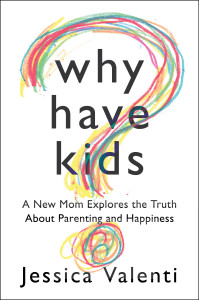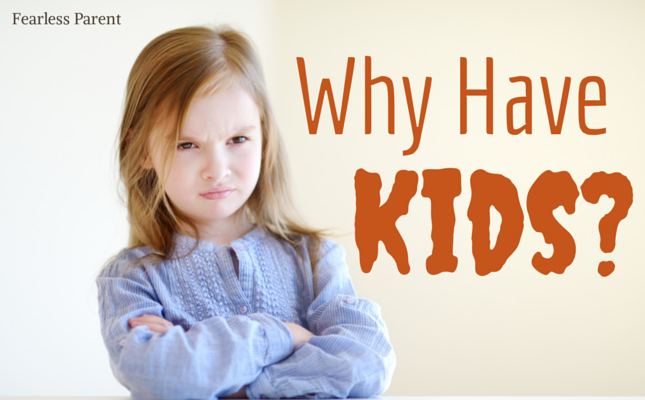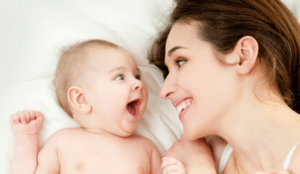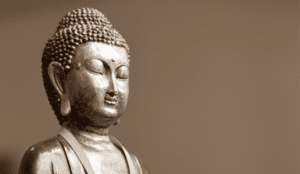 I was in a mood when my eyes glanced at this book title. Indeed, I thought, the ungrateful little buggers. Oops, I’m not supposed to express that publicly. The central mothering narrative is that our children complete us. At times, they surely do. But not always. Author Jessica Valenti’s central thesis in her new book Why Have Kids? is that there’s a mythology about parenting and it’s this disconnect between expectations and reality that makes parents unhappy.
I was in a mood when my eyes glanced at this book title. Indeed, I thought, the ungrateful little buggers. Oops, I’m not supposed to express that publicly. The central mothering narrative is that our children complete us. At times, they surely do. But not always. Author Jessica Valenti’s central thesis in her new book Why Have Kids? is that there’s a mythology about parenting and it’s this disconnect between expectations and reality that makes parents unhappy.
Parts of her book are right on the mark but I totally disagree with the rest. I invited author Jessica Valenti to come on Fearless Parent Radio (she declined). In the meantime, I’ll share my observations with her book, starting with where we agree.
Children make us happy, dammit
SO WHY ARE WE SO DEPRESSED?
Valenti says that women are told a pack of lies. Chief among these is the idea that having children will make us happy. If you want to become a mother because you are missing something in your life, a bit of a warning is in order. Lots of new parents are depressed:
- up to 20% of new mothers experience postpartum depression, increasing to 50%+ if you lack financial and community supports
- stay-at-home moms are more likely to experience depression
- working moms with unrealistic expectations are also at risk
- 10% of fathers meet the standards for postpartum depression
- as many as 90% couples experience a decline in marital satisfaction
This is a bit of a shocker; a paradox, even. We love, value, and prioritize our children. Parenting is rewarding and provides a mission, sense of purpose, and moments of pure joy. So why is it that our daily lives are most assuredly not happier with kids? Happiness researcher Daniel Gilbert says children “crowd out” the things that used to give us pleasure–spending time with friends, going out to eat, and leisure time to pursue a hobby, read a book, or see a show.
MOM IS THE NATURAL PARENT
While more couples have egalitarian marriages today, mom still does the lion’s share of parenting and housework. In colonial America, society used to have more of a shared stake. Grandparents and other extended family members co-parented. Women benefited from a broader community of support and also engaged in valuable, non-domestic work. We worked side by side with men and were also responsible for growing food and flax for clothing. Our contributions were highly esteemed. For a time, some unmarried women were permitted to vote and own property.
Author and historian Gail Collins explains what happened in America’s Women. As we built infrastructure and machinery to outsource time consuming activities, daily life became easier and the status of women plummeted. Women were pushed out of the public sphere. To assuage our bruised feelings, we were told that our our mothering responsibilities were vital to the intellectual and moral fiber of the republic. Some consolation prize!
Valenti says that we’ve elevated the status of motherhood to a divine occupation but it doesn’t change “the fact that we’re still doing all the goddamn work.” (And many work outside of the home, to boot.)
“THE HARDEST JOB IN THE WORLD”
Anyone who denies this is very fortunate (lots of family or employer support), affluent (lots of paid support), or childless. When moms utter in unison, “Hardest thing I’ve ever done,” we speak to the physical and emotional challenges of being available, patient, enriching, nurturing, and self-sacrificing, while cooking, feeding, bathing, cleaning, provisioning, and educating, with no vacations, sick days, or option to quit. Valenti offers a curt response:
- “We must believe it because the truth is just too damn depressing.”
- “We say motherhood is important but we sure don’t act that way.”
She says parenting isn’t a job. Motherhood is the most important relationship she will ever have, but she doesn’t want motherhood to be the most important thing she ever does.
PLAN AHEAD AND NEGOTIATE
I basically agree with the above. Before becoming a mom, I worked. At times, I was responsible for hundreds of people and millions of dollars. I thought rather smugly: How hard can parenting be? I learned.
The default mode is that mom ends up doing most of the work for a variety of reasons. We want to do it. We believe we can do it better. Our spouses believe we can do it better. This is what our parents did. Our spouses can make more money. It doesn’t really matter why. It’s up to us to negotiate carefully with the other adults in our lives. And do it before conceiving. Once baby is home, it’s no longer a secret that one tiny little person can entirely disrupt your lives. We will have happier and more effective households, and women will have greater financial security, if we share both parenting and wage earning responsibilities.
Americans pride ourselves on our rugged individualism. We make our choices, reap the rewards, and own the responsibilities and consequences. With parenting, however, the belief that we need to “go it alone” is not best for moms, kids, or families. I agree with Valenti that parents must advocate for societal supports, such as paid leave, subsidized child care, and flexible scheduling. This isn’t whining or begging, nor is it purely a women’s issue. It’s a reflection of our priorities. We all have an investment in the generations that succeed us. Healthy, functional families are in the national interest.
This book perpetuates the “Mommy Wars”
We now come to the very big place where Valenti and I part ways. She bristles against the varied ways that women are criticized and guilt-tripped. She challenges parents “to think more critically about their choices, and the way they impact their children, their lives, and the rest of society.”
She then proceeds to criticize, shame, and attack parents for their choices, sometimes using reductive reasoning that’s flat out wrong.
BREASTFEEDING
Valenti was unable to nurse her baby. She tried but was overwhelmed by pain and exhaustion. Awash in feelings of humiliation and failure, she started supplementing. “We have to stop bashing women over the heads with guilt over formula feeding.” So far, I’m with her.
But then she loses me. Valenti lists “breast is best” as another parenting lie: “Formula feeding your child is just as valid and healthy a choice as breastfeeding…” She touts the work of political scientist Joan B. Wolf who challenges the belief that breastfeeding is medically superior to bottle-feeding. Wolf says: “The only real benefit that has been proven to be a direct result of breast milk is that babies who are nursed have fewer gastrointestinal issues.”
Oh my.
It isn’t close to being the only real benefit but it’s a huge one. I could fill dozens of posts about the vital connection between gut integrity (the microbiome!), immune health, and normal development.
Some women cannot breastfeed for a variety of reasons. I agree that we must have compassion and understanding. I’m all for finding structural solutions. But I draw the line at spreading falsehoods. Formula is simply not the same as breastfeeding. Among many other resources, the AAP, ACOG, WHO, and numerous PubMed researchers all agree that breast is best.
ELIMINATION COMMUNICATION (“EC”)
Valenti has me nodding when she says: “It’s one thing to believe breastfeeding is best and parent accordingly, it’s quite another to tell other mothers that they’re somehow subpar.” And she has me groaning when she attacks proponents of the EC or diaper-free movement:
- “[It is a] white middle-class phenomenon of fetishizing a largely imaginary ‘third world’ motherhood that’s supposedly more pure and natural than Western parenting practices.”
- “It’s easy to appropriate a condescending fixation on ‘underdeveloped’ motherhood when you have the financial means and leisure time to pick whatever kind of parenting works for you at the moment. This kind of clueless racism…”
- “Clearly (author) Gross-Loh has never seen the joyful face of a baby who happily plays blocks while sitting in her own poop.”
Whoa. Parents deserve to know that there is an alternative to 3+ years and $3,000 worth of stinky, landfill-clogging diapering and wiping. EC moms express deep pride and satisfaction to communicate with their babies at this level. Whether this method of natural toilet training is for you is beside the point. That Valenti views EC as a feminist’s worst nightmare doesn’t mean it’s not a valid choice for some parents. She lapses into the same critical mode that she lambastes in others.
ANTI-VAXERS PROVE THAT MOM DOESN’T KNOW BEST
Valenti believes that maternal instinct is purely a social construct: “We’ve become know-it-alls… While there’s something empowering and encouraging about women taking control of their lives… there’s also something dangerous there.”
To make her point, she links concerns about vaccine safety with a form of what she regards as ignorant helicopter parenting. But her conclusions are facile and unprobing. Valenti relies upon a former heroin addict (self-admitted and reported by his mother) and non-scientist who penned an ad hominem screed about the vaccine-autism controversy that contains absolutely no science while it attacks concerned parents as anti-science. Drawing from his work and evidencing no research of her own, Valenti blames “former Playboy bunny” (!! — Valenti is a self-avowed feminist) Jenny McCarthy for mainstreaming anti-vaccination (hardly! it has been around for centuries), suggests that her son never had autism (how dare she?), and accuses vaccine safety advocates of skewing the data. Further, she patronizes worried parents by saying it can be “very scary” if you’re not science literate and don’t understand why these things are important.
I can’t buy into the idea that it’s dangerous to educate ourselves and take control of our lives. Nowhere does she mention the new childhood normal of sick, fat, and at risk children; the health risks of chemical exposures; and the complete inability of public health or mainstream medicine to offer viable solutions for prevention and cure. I’m hopeful Valenti will revisit her reflexive conclusions. Curiously, she closes her vaccine discussion with a statement that comes closer to supporting my position than her own:
“The medical establishment also failed women, specifically–which is why so many of them seek out information elsewhere. They have very good reasons to be skeptical of the medical establishment, particularly as it pertains to becoming a parent.”
Amen.
***
Overall, the book disappoints. Valenti never answered the question she set out to address: why have kids? It seemed to be more of a rant against selected pet peeves, and I was left wondering if she secretly regrets becoming a parent. Her most lively chapters are the ones explaining why smart women don’t have kids and the happiest parents spend the least time with their children.
Until we have kids, parents have no clue what we’re getting into. It’s a good thing that our biology rewards behaviors that lead to mating and procreation because many of us are preoccupied and might otherwise postpone the decision indefinitely. There are good reasons on both sides of the fence. It’s true that parenting is exhausting, depleting, exasperating, and terrifying. But it’s also much more. Children teach, inspire, amuse, and tap into the best parts of us. They pull us out of our heads and into our hearts. They give us a shot at immortality and a stake in the future.
Louise continues to learn about love, forgiveness, patience, resilience, trust, and hope from her boys. They are the best life teachers she has ever had.













Sounds like a horrible book. One I will never read!
Why read this book?
It sounds like an awful lot of rants based on her own poor-to-limited understanding of parenthood, and the facts that go with it.
41% of the population is vitamin D-deficient–a known cause of depression–and she’s blaming post-partum depression on…having children?
She certainly sounds like she’s bought into every marketing byte that ever was for infant formula, disposable diapers, vaccines, and more.
She believes the happiest parents spend the least time with their kids? I’d say the happiest parents are the ones who spend the least time listening to her or reading her words.
Lets hope she never has kids. And hope – but won’t hold my breath- that she revisits her completely ignorant stance on vaccinating, and mothers using their own knowledge, common sense and intuition as being the BEST advocates for their children’s well being. So very tired of lies being spewed as facts.
Modern Feminism is an INSULT to women and nothing more than a tool for socialism/communism.
Totally agree. Modern Western Feminism is nothing more than a way to emasculate men, destroy the family, teach women that they are nothing more than the same as a man, remove every instinct that is motherhood, on and on. It’s disgusting.
Let’s just pop out babies, feed them fluoridated formula and GMO crap, load them up with vaccines, not shave our legs, not take care of our husbands, reject the notion of looking pretty or being feminine, and claim we are WOMEN because that is just soooooo enlightened.
Well said Louise
abandoning common sense and our mama bear/tribal instincts in the name of “freedom” and “choice” …handing over our rights to the religion of “science” (history repeats itself) doesn’t make one free. It’s merely an illusion, a power of perception. Leaving one institutionalized mindset for another and not being able to recognize it is hypocrisy
I wonder how much she got paid for planting that BS
I can’t stand feminists or vaxxers. Sounds like a winning combo
Nothing wrong with feminists. I consider myself one. But its just like anything else. The extremists give the rest of us a bad name. I believe in equality. Being anti feminism lends little credibility to self educated mothers. We should all support a woman’s right to decide for herself what resonates for her, which the writer fails to do here. This person’s views are not representative of all feminists. Some of us actually possess the ability to think critically. There are extremists on both sides, unfortunately. Where motherhood is concerned, what women need is to be taken seriously. Especially mothers fighting for their kids’ well being.
I am against feminism. It’s more liberal victimization propaganda, much like the idea that the constitution is ” flawed”, hatred of one’s own country, and the idea like in mandatory vaccinations that most people are too stupid to make important decisions, so a group of people w/ popular mainstream ideas,come in and save us all from ourselves. May be why America is a shell of what it used to be. Accepting tyranny and not being courageous enough to.support our freedoms, when we have to make sacrifices! Not something I can feel proud about. But people are waking up!
Well put Sherry
That book was actually published? Why?
It is sickening to see their are female anti-feminists. Obviously they have no idea of the history of women and what they had to do to fight for any type of equal rights, which we still don’t have. So many young women these days, take those rights for granted because of not knowing what it was like before they were even born. Educate yourselves instead of spreading hate. It’s bad enough listening to the threatened males that like their women at home, barefoot, pregnant, and silent. Of course not all men are like that, most love their women being equal and smart. But then there are the extremists that want to turn back history.
Feminism is the belief that women deserve the same rights (in this country, I suppose that means ‘to life, liberty, and the pursuit of happiness’) as men. Period. End of story.
And, you’re against that? Why?
Forget the bra-burning (although, hm, interestingly enough I see an article about ‘ditching your bra’ on this website) and stick to the underlying philosophy.
Did you know that when a country invests in the rights of its women that everyone (especially babies and children) benefits? I wonder how many fathers are on this ‘Fearless PARENT’ website? It’s not wildly out of line to guess it’s mostly conscientious mothers. The hand that rocks the cradle rules the world. Therefore, feminism is 100% necessary for the success of the agenda of this website and its creators/followers. If a mother is stripped of her rights to make decisions about her child (and yes, that happens in many countries where there has yet to be a feminist movement) then where are we? What can you accomplish?
I am a strong supporter of breastfeeding and natural health, and a strong hater of the ‘mommy wars’, but you’re as bad as you think she is if you launch into an ‘I hate feminists’ rant because this author doesn’t recognize the importance of Vitamin D.
As a reformed anxious/fearful parent, I will not read her book for the same reason a reformed alcoholic will not visit a bar, but you can disagree with her without shaming her, and without throwing all women’s basic human rights away. Believe me, you are expending precious energy slinging arrows at the wrong enemy.
Hi, Kate. You didn’t read my post carefully.
1. I am a feminist. I agree with your description of feminism. I believe that all people are equal and entitled to fundamental human rights. Can you tell me where in the post it suggests that I hate feminists?
2. I agree with your statement that, when a country invests in the rights of its women, everyone (especially babies and children) benefits. I agree 100%! I run a non-profit called Center for Personal Rights that is focused on children’s health and parental rights. Fearless Parent is a project of CPR.
3. Many men are part of Fearless Parent, including team members, bloggers, and radio hosts/guests. I happen to like men very much, and happily so, since I’m surrounded by them at home. I really dislike the anti-male rhetoric that seems to accompany some discussions about feminism. I don’t believe it’s effective and it turns a lot of people off. But that’s a separate issue. PEOPLE need to work together. The varied ways women and children are disadvantaged isn’t a female problem or a male problem. It’s a societal problem. All of us, feminists included, urgently need to care about vaccine policy. Valenti’s treatment of this topic in her book is reflexive, superficial, and ultimately harmful because she positions herself as a feminist leader. She owes it to women to undertake a more conscientious analysis.
4. Just because we’re feminists doesn’t mean we will agree on everything. As I said in my post, I liked parts of Valenti’s book very much, and I found other parts divisive and not constructive. I felt it would be useful to have a conversation about them. It might bring more support to her work overall if she’s willing to open her mind. If you would like to identify specific comments in my post, or on our blog or radio show with which you don’t agree, let’s talk! But your vitriolic sweeping comments accusing me of being an anti-feminist don’t work.
5. I’m not following you on the Vitamin D comment. We don’t shame anyone on this site for their choices. We ask the same in return. Her book is scathing in its treatment of parents and advocates who are concerned about vaccination, and she deserves to be challenged:
– She suggests that we are “know it alls” [p77]
– She says that there’s also something dangerous about empowered women taking control of our lives [p78] because “we don’t know everything” [p89]
– She accuses us of skewing data to terrify people [p84]
Valenti stakes out her feminist territory and then attacks mothers under that banner. I’m calling her on it.
When I was a kid my mom couldn’t get her own credit to purchase a car or home. Thank God for the feminist movement. Feminism was the hope my parents had for me to live a full life.
This is my first visit to this site. I pulled myself out of rheumatoid arthritis after an MMR vaccine I didn’t need in college and devote my life to teaching natural wellness principles. I was an early funder for Bought and see how important this organization is.
A big Thank You! to Ms Habakus!
Now on to a radio show!
Good for you, Louise!
Great post! And it sounds like a terrible book! I think I’ll skip that one.
Those who don’t care about the future should not be surprised when the future does not care about them. Who do the childless demand to take care of them in the nursing home? Why, our kids, of course. . . From time immemorial, the parents have taken care of the young, and when the parents have become old, the new parents take care of the old. Wishful thinking can’t change life’s realities. We have duties towards our children and our parents both. We are here but for a moment; we are like the Olympic runner passing the torch to the next generation. It is the duty of all life to have children. Anything else is a dead-end.
Is that why you had kids, Tom? Lolollol
Tell her how it is, Louise!
I agree, I think I’ll skip this book as well. I’ve been worried about vaccinations myself, it’s a point of disagreement with my husband and I (we’re trying, and hoping) But on the same level: formula is that: formula it’s chemicals and missing nutrients. While I want my husband to be part of the feeding times: I will pump and store. I can not bring myself to feed my child formula even tho I was raised on it (I was adopted).
I’m an anti feminist feminist (if you know what I mean)
I’m probiotic meaning “for life”… and feel there is much room for inquiry and mindfulness. Thanks for calling her out Louise.
Seems there is only enough room in her ‘feminist camp’ for her pov to dominate everyone else’s pov.
Damnit. Jessica Valenti is/was one of my favorite bloggers and authors. I was raised feminist and minored in women’s studies in college. But the feminist movement is fractured and unfortunately, this book probably highlights just that. I know you and value your opinion well enough Louise to not add Why Have Kids to my bookshelf, and that leaves me a little heartbroken. 🙁
Terra, please write to her and let her know that you admire her work, and encourage her to take a hard look at her position on these issues. Parts of her book were thoughtful. I took pains to highlight them in the post… the first half of my post is about the things I liked and where I agreed.
I got the feeling from reading the sections on vaccines and EC, for example, that she did not do much research. It seems that she relied on sources she believed to be trustworthy… she can’t see that they are (either directly or indirectly) industry-funded spokespeople and by doing so, she gave away her power to the very system that oppresses us.
I think she might have been referring to some other commenters, who were bashing the term feminist. Don’t know for sure, I agree with you and am very much a feminist.
Yes, Elaine, I think you’re right. People are entitled to their views. I know many who say they are not feminists (or dislike the feminist label) because they equate it with male-bashing and they don’t want to be associated with that, and that’s understandable.
But that’s not what this is about.
Feminists should care a whole lot about sick kids, decimated by vaccines and GMOs and other environmental toxins, and the mothers and others who care for them. Feminists can’t leave behind the very people we claim to represent. Otherwise feminists just become another special interest group looking to advance themselves by playing the power game.
Love you Louise Kuo Habakus
You should read this new pro vaccine writer Eula Bliss. Louise. Very brilliantly divisive. I get the feeling that there is an academic drive for some women to differentiate themselves from the “silly stay at home moms” who are buzzing about these things, vaccine safety, GMOs. It’s cooler to gloss over and not worry about. She’s very condescending. The only good thing is they have figured out not to drag some Paul Offit type out in defense. I guess they are taking us seriously now, at least that’s the hope.
Must read: You Call Yourself A Feminist? by Megan of LivingWhole.org
One of the central problems with feminism as practiced in the United States that I have never seen reconciled, is the fact that a central value of American feminism is the belief, which has now been adopted by the culture as a whole, that parenting is not a respectable full-time occupation for an adult, male of female. This book is further support for that idea. Parenting has been demoted in favor of market-driven values. Once upon a time only men were evaluated on how well they they performed at serving primarily business interests. Now women are judged first and foremost by how useful they are to their employers, not their children. Such is progress.